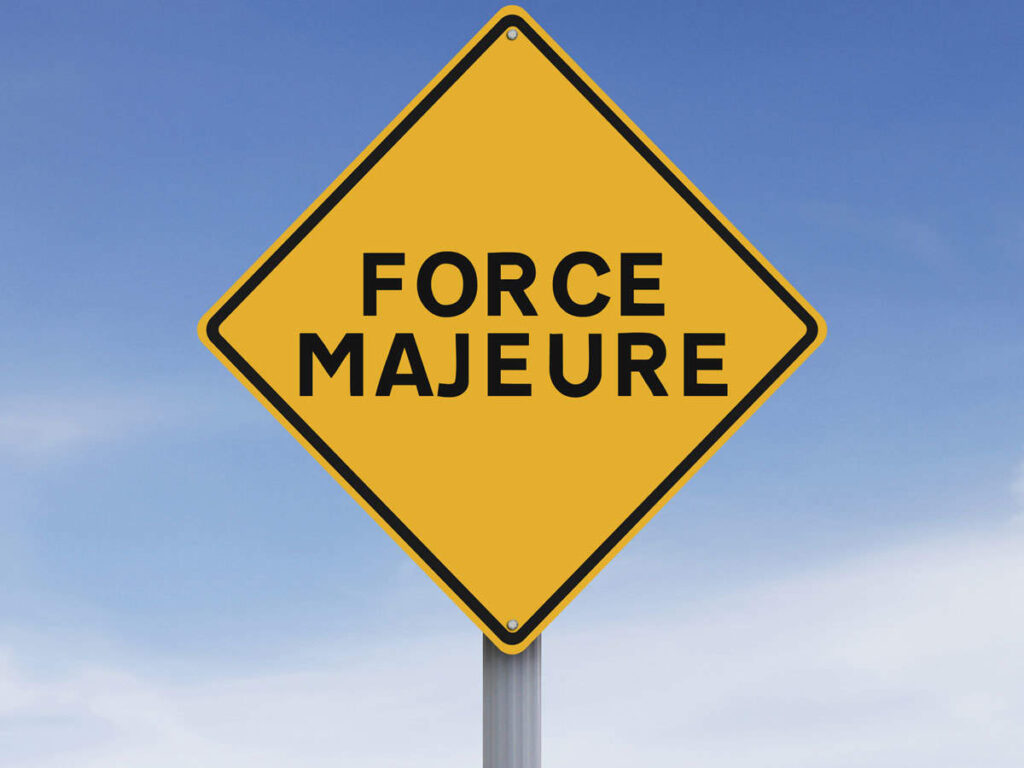The world is full of uncertainty and unforeseen events. It’s why contracts are so important in commercial transactions – they provide a measure of security and assurance that the parties involved will carry out their obligations as agreed upon. But what happens when an unexpected event outside of the agreement arises, one that disrupts or prevents parties from fulfilling their duties? This is where Force Majeure comes in.
Majeure clauses are written into some contracts to protect the parties involved in extraordinary circumstances beyond their control, like natural disasters, pandemics, or political unrest. In this article, we’ll discuss what Force Majeure is, what kinds of events can trigger it, strategies for analyzing and mitigating risk associated with these events, and how to use it as a tool to strengthen your contracts. Let’s get started!
Types of Events
Majeure events can be divided into four distinct categories, each with its own set of risks that must be assessed and managed. The first category is natural disasters such as floods, earthquakes, hurricanes, and tornadoes. These disasters can cause significant damage to physical infrastructure, disrupt supply chains, and severely impact business operations. Companies must analyze their potential exposure to natural disasters when entering into a contract and consider how they would respond in the event of such an occurrence.
The second category consists of man-made disasters such as civil unrest, terrorism, and war. These types of events often create more unpredictable scenarios than natural disasters do due to their unpredictability and the potential for lasting impacts on the region or country affected by them. Companies should take steps to assess their risk exposure in countries or regions where these kinds of events are likely to occur as well as contingency plans for responding if it does occur.
The third category is industrial accidents like explosions or oil spills. These types of incidents represent a unique risk for companies because they typically involve hazardous materials that can have serious environmental consequences if not handled properly. Companies must identify any potential sources of hazardous materials in their operations and have plans in place for dealing with any accidents that may arise from them.
The fourth category is supply chain disruptions such as transportation delays or port closures. Disruptions in the supply chain can have a significant impact on businesses due to the need for raw materials or finished goods at certain times in order to meet customer demand. Companies should evaluate their suppliers’ ability to deliver goods on time and develop strategies for mitigating disruption risks if possible.
Ultimately, Majeure clauses provide companies with protection against unexpected circumstances beyond their control while still enabling them to execute contracts effectively during normal business conditions. By carefully assessing potential risks associated with different types of Majeure events, companies can ensure they are prepared when unexpected circumstances arise while maintaining strong contractual agreements with partners along the way.

Analyzing Clauses
When analyzing Majeure clauses, it is important to understand the scope and purpose of the clause. The clause should be specific enough to cover a wide range of events that could cause a party’s performance to become impossible or impractical. It is also important that the clause includes a clear list of events that could trigger it, which could include natural disasters, man-made disasters, industrial accidents, and supply chain disruptions.
To ensure that your Majeure clause is effective in protecting you against unexpected circumstances, it is important to review the list of events included in the clause and identify any discrepancies between the clause and actual events. It is also important to find out what remedies are available if an event not covered by the majeure clause occurs.
Another key factor when analyzing Majeure clauses is understanding whether they are being used as an excuse or as a legitimate protection mechanism. If they are being used as an excuse for non-performance, then its effectiveness may be limited as parties can often use other contractual provisions to obtain damages or compensation for breach of contract. On the other hand, if they are being used as part of a risk management strategy with other contractual protections in place, then its efficacy can be very useful in providing companies with protection against unexpected circumstances while still enabling them to execute contracts effectively.
It is also important to consider how flexible your Majeure clause should be. While having too much flexibility can give rise to potential disputes over what constitutes an extraordinary circumstance, having too little flexibility leaves parties unable to adjust their performance due to unforeseen circumstances outside their control. As such, it is necessary for parties negotiating contracts to strike a balance between these two considerations when drafting their Majeure clauses.
In conclusion, understanding how force majeure works and analyzing its clauses carefully will help protect parties from liability in extraordinary circumstances beyond their control while allowing them the flexibility necessary for effective contract negotiation and execution. By doing so companies will have greater confidence when entering into agreements knowing that they have adequate protection mechanisms in place against unexpected circumstances should they arise
Force Majeure provides a valuable tool for protecting businesses from unexpected occurrences, but companies must take appropriate steps to ensure that they are fully prepared to deal with the consequences of such events. By having clear and specific Majeure clauses written into contracts, including contingencies and backup plans, performing due diligence when selecting vendors and partners, understanding applicable local laws relating to these events, obtaining appropriate insurance policies covering losses associated with them, and developing internal processes for quickly responding appropriately, companies can secure their operations against unforeseen circumstances.
















